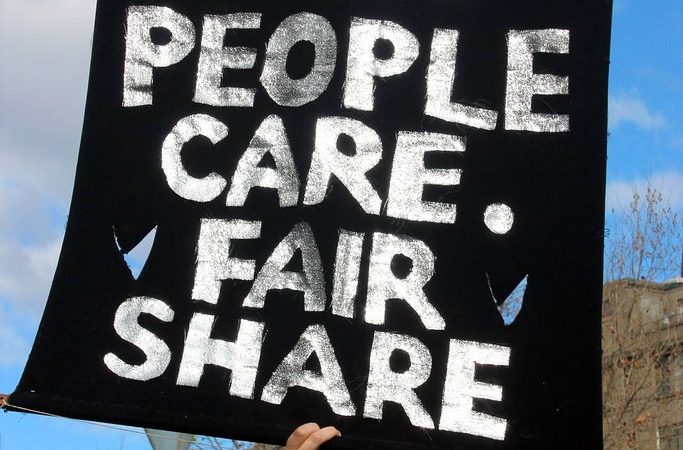Item Link: Access the Resource
File: Download
Date of Publication: November 2017
Year of Publication: 2017
Publisher: Climate Equity Reference Project
Author(s): Civil Society Equity Review Grop
Towards a meaningful 2018 Facilitative Dialogue
As “an opportunity to assess and correct our collective course,” the 2018 Facilitative Dialogue serves as a critical point for countries to ramp up climate mitigation ambitions –equitably and together. The report outlines the importance of using the 2018 Facilitative Dialogue to establish a process for assessing adequacy and fairness of contributions.
Summary: We are not on track to achieve the principal aim of the Paris climate agreement: keeping global temperature rise to well below 2°C, while pursuing 1.5°C. More ambition is urgently needed.
This ambition will not be easily achieved. Real cooperation will be necessary, and it will not be possible without equity on both the mitigation and adaptation sides of the climate challenge.
The first round of nationally determined contributions (NDCs) — the proposed reductions in domestic greenhouse gas emissions that countries presented at the Paris climate summit in 2015 — implies at least 3°C of warming. Fortunately, the Paris Agreement offers ways of securing increased ambition, while taking due account of ”means of implementation and support” and being conducted ”in the light of equity.”
Despite the Trump administration’s chilling threat to abandon the Paris Agreement, the 2018 Facilitative Dialogue, a key part of the agreement’s ambition ratcheting mechanism, has to be more than a meaningless talk shop. The reality is that, if the Paris temperature limits are not to be breached, all countries need to take on more mitigation than currently pledged.
This means different things for different countries.
It is essential that wealthier countries urgently and dramatically deepen their domestic mitigation. And, if they are to contribute their fair shares, they must also support additional actions outside their own borders. Meanwhile, many developing country pledges do meet or exceed their fair shares. Yet, they too will have to do much more: the 1.5°C objective requires profound action in developing countries that cannot realistically, or fairly, be expected without meaningful levels of international support.
Ultimately, the challenges here will crystalize around the 2023 Global Stocktake, but the 2018 Facilitative Dialogue will set important precedents. Thus, it must pioneer a process for assessing the adequacy and fairness not only of collective ambition, but of individual country contributions as well.
To that end, Parties should prepare to justify their efforts as fair contributions to a shared 1.5°C global effort. They should do so in transparent ways, measuring their contributions against fundamental equity principles. If their contributions fall short, they must be prepared to quickly strengthen them.
Read the full report here. Visit civilsocietyreview.org for an up-to-date list of signatories to this report and to find out how to endorse.
The views and opinions expressed through the MAHB Website are those of the contributing authors and do not necessarily reflect an official position of the MAHB. The MAHB aims to share a range of perspectives and welcomes the discussions that they prompt.
